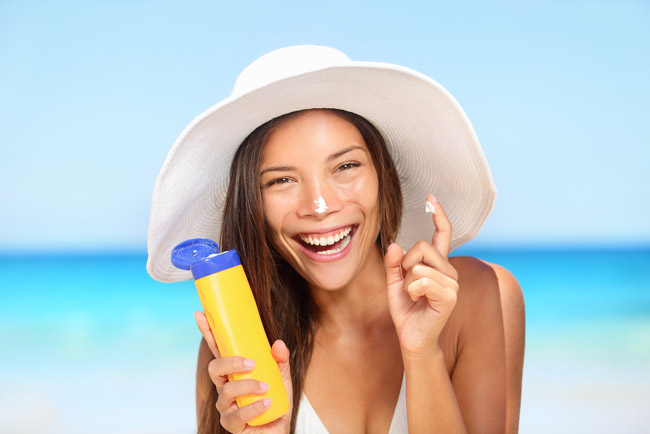How SPF Protects Our Skin. Get Complete Guide on SPF

Sunscreens are a necessary component of a skincare routine for skin health enthusiasts. In order to maintain the healthy state of your skin, especially during summer, using the sunscreen is not an option. This helps in protecting or forming a layer over the skin, protecting it from the damaging effects of the sun. Currently, there are numerous products with different formulations working as effective sunscreens. Finding the best in the market can be daunting. However, several characteristics of the sunscreens guide on their working ability. Therefore, having a look into these factors will help in finding the best product.
Natural sunlight contains ultraviolet rays among other things. These photons have high energy that the visible sunlight but are shorter in wavelength. This makes them fall out of the visible spectrum thus cannot be perceived by the human eye. Consistent exposure to the sun, during summer, brings along the ultraviolet rays. Due to their high-energy state, these photons generate free radicals that can damage your DNA when they strike your skin. Prolonged exposure results in various skin signs and symptoms including premature aging, skin cancer, sunburns among other conditions.
As mentioned before, a sunscreen acts like a bulletproof vest that stops the UV photons from reaching the skin. Just to mention, the UV rays are of two types. The types are UVA and UVB. UVB is the Uv type behind developments of sunburns. On the other side, UVA effects include skin sagging, wrinkling, leathering and photoaging effects.
Protecting the skin from these two different types requires cautious selection of a sunscreen. A sunscreen contains organic molecules that reflect, scatters and absorb the UV rays before reaching and inflicting damage on the skin. To deliver and achieve this high-level protection, any product should have various sufficient quantities of the protective agents, the ingredients. Besides, they must be deployed optimally on the various skin surfaces. Among the principal factor to consider when searching for a perfect sunscreen is the SPF.
Lengthily known as a Sun Protection Factor, it refers to a measure of how well the sunscreen will protect the skin from effects of UVB rays. These are the radiations that cause sunburn and damages the skin which may eventually result in skin cancers. This is an important determinant as it relates to the percentile effectiveness of the sunscreen. That said, finding the best sunscreen for the face is highly dependent on this factor.
Just to illustrate, applying a sunscreen with an SPF value of 15 will lengthen the time taken for skin that would normally burn after 10 minutes to 150 minutes. However, the protection time can be affected by the intensity of the sunlight, amount of sunscreen used and the skin type. For best skin protection, it is recommended that consider using a sunscreen with an SPF value not lower than 15.
Many people may think that using a sunscreen with a higher sun protection factor may be the best choice. However, this may not be true. The best SPF for face cannot be hypothetically determined. This is because the sun protection factor is not a linear scale. For instance, a sunscreen with an SPF value of 15 blocks approximately 93% of the UVB rays. One with an SPF of 30 blocks 97% and that of 50 blocks 98% of the UVB rays. With these values, there is no much difference between the three SPF values.
To add to this, it is not recommended that you use a sunscreen with a high SPF value. Sunscreens with a high SPF value such as 75 or 100 may not be effective. They do not offer any significantly greater protection compared to that of 30. Its narrow spectrum of protection and short lifespan are some of the main reasons why such sunscreens may not be a prudent choice. Having mentioned this, there are several sunscreens, which would make the best choices as facial sunscreens. Some of these sunscreens include:
There are many other brands of sunscreens with this range of SPF.
Besides SPF, there are other myriads of factors to look into when searching for these products. Other factors are the price, type of formulation, your skin type and much more. However, to get full protection from both UVB and UVA rays, it is important to incorporate other skin protection measures. Some of the measures include staying away from the sun and wearing protective clothing when undertaking outdoor activities.
